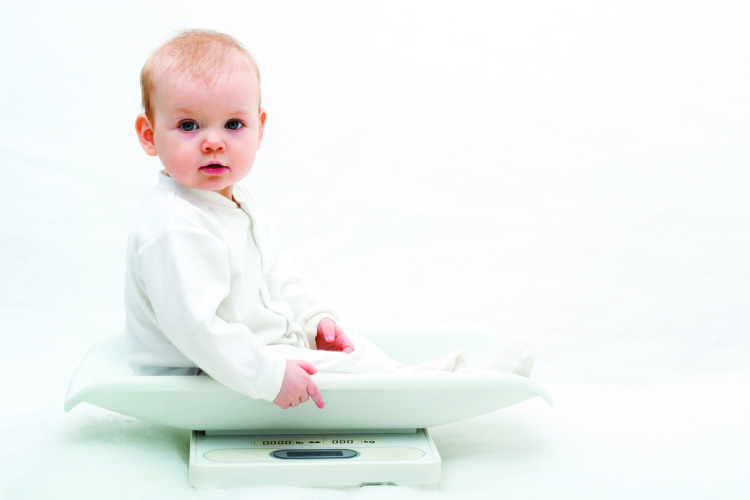Immediately after birth and after the first few days and weeks of her life, your newborn will receive a series of health assessments to ensure everything is okay with her.
Right after he is born, your newborn baby will go through a number of assessments to make sure that he is in good health. Depending on the hospital or birth centre where your baby is delivered, the first exam will either take place in the nursery or at your side.
His first assessments called the Apgar score, occur when he is just one minute and five minutes old. This assessment is a scoring system that assesses newborn babies’ well-being using five different factors: heart rate, breathing, muscle tone, reflexes, and skin colour.
- Weight, length, and head circumference will be measured.
- Temperature will be taken, and your baby’s breathing and heart rate will be measured.
- The healthcare provider will give your newborn baby a physical examination and conduct screening tests for hearing and various genetic disorders.
- Your newborn baby will be given an antibiotic eye ointment called erythromycin within two hours after birth to prevent eye infections.
- He will receive an injection of vitamin K to ensure proper clotting of the blood and to prevent the possibility of bleeding.
- If your newborn baby is high risk for hepatitis B, he will be immunized against this disease. His stool and urine output will be monitored.
- If he shows signs of jaundice, he will be monitored and treated accordingly.
- Your baby will also be given a first bath, and the umbilical cord stump will be cleaned.
It’s important to decide on a doctor for your baby as they need frequent check-ups, vaccines, and they sometimes get sick. If you deliver at a hospital where your baby’s doctor normally sees patients, she will see the baby right after the delivery. If not, a paediatrician on staff at the hospital should see your baby right after the birth. Then you can call your baby’s doctor to schedule a visit a few days after birth. Remember to get your baby’s medical records before leaving the hospital. Your baby’s doctor will need them.
Table of Contents
Routine Check-Ups
As your baby grows, your baby’s doctor will be looking for different things during the visits. Common parts of a baby check-up are:
- Charting growth: Visits usually begin with weight, length, and head measurements that are plotted on a chart. You can use this to see how your baby’s growth compares to others at the same age.
- Physical examination: A thorough physical exam – from head to toe – is done. The doctor will look for signs that your baby is healthy and meeting normal physical development goals.
- General development: The doctor will check to make sure your baby is meeting the goals for motor skills and emotional development. These can range from rolling over and head control during early visits to walking, talking, and following simple instructions during later visits.
- Nutrition: Your doctor will give you advice about breastfeeding, vitamins and other nutritional issues. As your baby grows, you’ll be asked questions about foods your baby eats.
- General discussion: The doctor will also want to tell you what to expect in your baby’s growth during the coming months. You may also be asked about how you and your family are caring for and interacting with the baby.
- Tests: Lab tests are not usually needed at these visits. During the first year, your baby may be tested for anaemia (low blood iron) with a simple finger-prick test. Depending on where you live and your baby’s environment, the provider may do a blood test for lead poisoning or a tuberculosis skin test.
- Vaccinations: At different ages, your baby will need different types of vaccinations during these visits.
REMINDER…
Be sure to ask any questions you have during the visit, no matter how small. Don’t be afraid to talk about it if you are feeling run-down, stressed, or depressed.
Immunizations
At birth or shortly after, some infants receive their first artificial immunization. Vaccines can help to protect your child against many childhood diseases.
Implemented in 1976 by Kementerian Kesihatan Malaysia, the National Immunisation Programme in Malaysia provides routine childhood immunisations for multiple infectious diseases. These include:
- BCG: Bacillus Calmette–Guérin (for tubercolosis)
- Hep B: Hepatitis B
- DTaP: Diptheria, Tetanus, accellular Pertussis
- IPV: Injectable Polio Vaccine
- HiB: Hemophilus influenzae type B
- MMR: Measels, Mumps and Rubella
Optional vaccines can be obtained at a private clinic or hospital of your choice:
- Pneumococcal (2 months up)
- Influenza (6 months up)
- Rotavirus (6 weeks to 6 months)
- Hepatitis A (10 months up)
- Chicken pox (12 months up)
When to Call the Doctor
Since small problems can indicate big problems for newborns, don’t hesitate to call your doctor if you have concerns.
- Some difficulties to be aware of during this first month:
- Has yellowish skin
- Has a temperature higher than 38° C) taken under the arm
- Vomits (more than just spit up) more than 2-3 times a day
- Refuses to feed or nurses poorly
- Has fewer than four wet diapers in 24 hours
- Has another problem that concerns you
- Excessive drowsiness
- Eye problems ie. pinkeye (conjunctivitis)
- A runny nose that causes difficulty in breathing, especially during feeding
- Very loose and watery stools could indicate illness
- Serious reduction in urine output (fewer than six wet diapers in 24 hours)
















